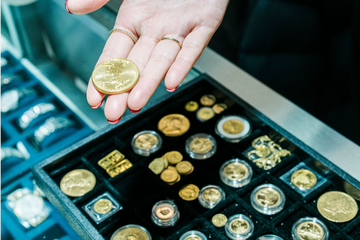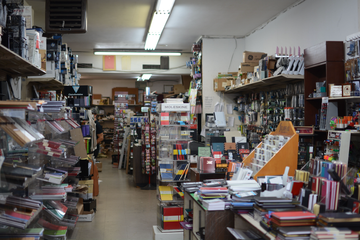The wood-paneled walls of Nino's convey a sense of comfort that seems well-fitted to the people in the neighborhood. The first time I stopped in, on a rainy and cold afternoon, Franco Vendome greeted me with his warm smile and pleasant conversation. He absolutely had me at hello! Franco explained that he took over running the restaurant from his parents in 2008, although I have had the pleasure of meeting his mom on a few occasions, as she does not seem to have slowed down one bit after "retiring. " I was sad to hear their story of a devastating fire in April 2011, but they picked up the pieces, renovating the entire interior and re-opened to an eager crowd nineteen months later. Known as "Nino's on 46" since his parents named it in 1982, Franco has guided the restaurant to higher culinary aspirations, focusing on recreating traditional Italian dishes with a contemporary twist. Like many restaurants in the area, Nino's gets its fair amount of regulars for lunch - and I was so pleased when many would gently interrupt our conversation, simply to say thank you and good-bye. Franco plays a vital role here; bouncing back and forth between the front and back of the house, he somehow manages to expertly run the kitchen while consistently providing a familiar presence to his patrons. Of course the mom insisted that we sit down and try some of their specialties when we returned to take photos one day. Within a short amount of time, she presented the Manhattan Sideways team with an array of dishes - from the classic eggplant parmigiana, a homemade pasta, thin crust pizza, and a Caesar salad, to the inventive truffled mac and cheese bites with a lemon aioli dipping sauce, beet-infused gnudi and Frank's special sandwich with a piece of breaded chicken cutlet, prosciutto, mozzarella, arugula, roasted peppers and a balsamic vinegar dressing. Franco's imaginative sensibility distinguishes Nino's from the standard fare; as he acknowledges, this place brings "a downtown vibe to Midtown, " creating a hipper menu with greater variation than the traditional Italian restaurant. This push to innovate at Nino's derives in part from its family history. As the first-generation to grow up in America, Franco often visits his grandparent's home in Avellino, Italy; living on a self-sufficient farm and making their own wine and olive oil, his grandparents initiated him into a food culture dependent on fresh, local ingredients. Having spent his childhood in the "traditional" Nino's, Franco sought to combine his commitment to sustainable agriculture with the values he learned from his parents and grandparents, while also giving the new Nino's his own stamp. We believe he has succeeded.




